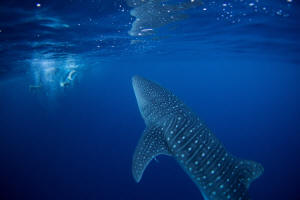Nations secure U.N. global high seas biodiversity pact
 Send a link to a friend
Send a link to a friend
 [March 06, 2023]
By David Stanway [March 06, 2023]
By David Stanway
(Reuters) -Negotiators from more than 100 countries completed a U.N.
treaty to protect the high seas on Saturday, a long-awaited step that
environmental groups say will help reverse marine biodiversity losses
and ensure sustainable development.
The legally binding pact to conserve and ensure the sustainable use of
ocean biodiversity, under discussion for 15 years, was finally agreed
after five rounds of protracted U.N.-led negotiations that ended in New
York on Saturday, a day after the original deadline.
"The ship has reached the shore," the U.N. conference president, Rena
Lee, said after a marathon final day of talks.
The treaty is seen as a crucial component in global efforts to bring 30%
of the world's land and sea under protection by the end of the decade, a
target known as "30 by 30" agreed in Montreal in December.
Economic interests were a major sticking point throughout the latest
round of negotiations, which began on Feb. 20, with developing countries
calling for a greater share of the spoils from the "blue economy",
including the transfer of technology.

An agreement to share the benefits of "marine genetic resources" used in
industries like biotechnology also remained an area of contention until
the end, dragging out talks.
The European Commission, the executive arm of the European Union, hailed
the agreement as a "historic moment".
"With the agreement on the UN High Seas Treaty, we take a crucial step
forward to preserve the marine life and biodiversity that are essential
for us and the generations to come," said Virginijus Sinkevicius, the
European commissioner for the environment, oceans and fisheries.
[to top of second column]
|

A whale shark swims next to volunteer
divers after they removed abandoned fishing net that was covering a
coral reef in a protected area of Ko Losin, Thailand June 19, 2021.
REUTERS/Jorge Silva

Greenpeace says 11 million square km (4.2 million square miles) of
ocean needs to be put under protection every year until 2030 to meet
the target.
Very little of the high seas is subject to any protection, with
pollution, acidification and overfishing posing a growing threat.
"Countries must formally adopt the treaty and ratify it as quickly
as possible to bring it into force, and then deliver the fully
protected ocean sanctuaries our planet needs," said Laura Meller, a
Greenpeace oceans campaigner who attended the talks.
"The clock is still ticking to deliver 30 by 30. We have half a
decade left, and we can't be complacent.”
Sweden, which was involved in the negotiations as the holder of the
EU's rotating presidency, said the agreement was the "most important
international environmental deal" since the 2015 Paris Agreement on
tackling climate change.
"It is also a victory for the UN and the global system that we have
managed to deliver such an important agreement at a very challenging
time,” Swedish Foreign Minister Tobias Billstrom said in a written
statement.
(Reporting by David Stanway in Singapore and Andrew Gray in
Brussels; Editing by William Mallard and Ros Russell)
[© 2023 Thomson Reuters. All rights
reserved.]This material may not be published,
broadcast, rewritten or redistributed.
Thompson Reuters is solely responsible for this content. |